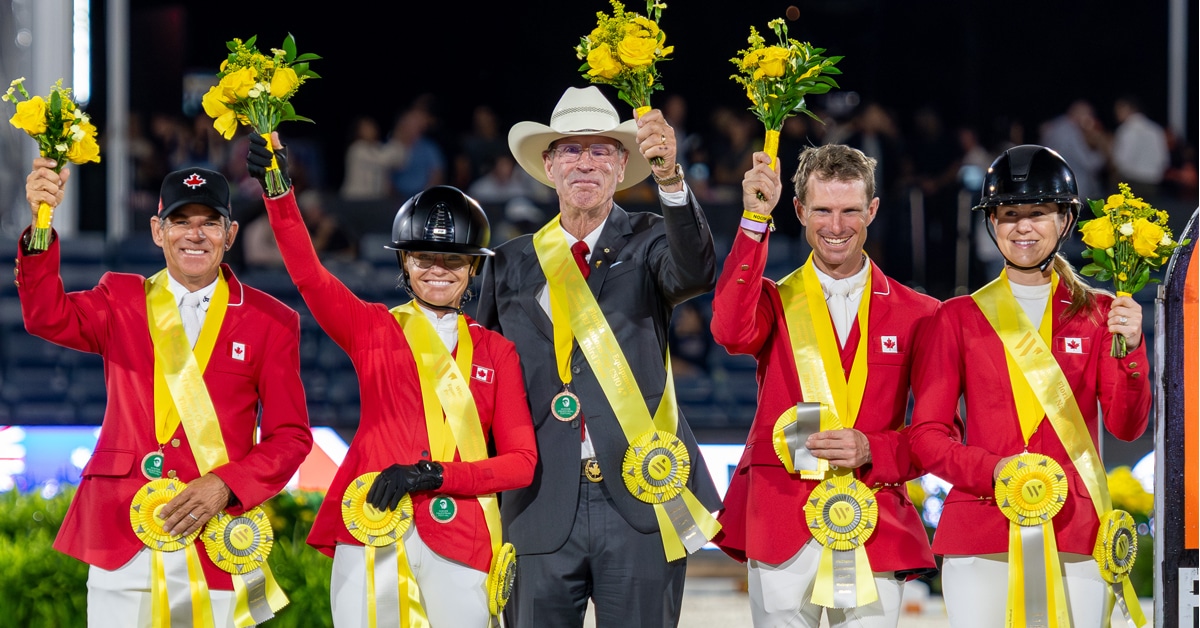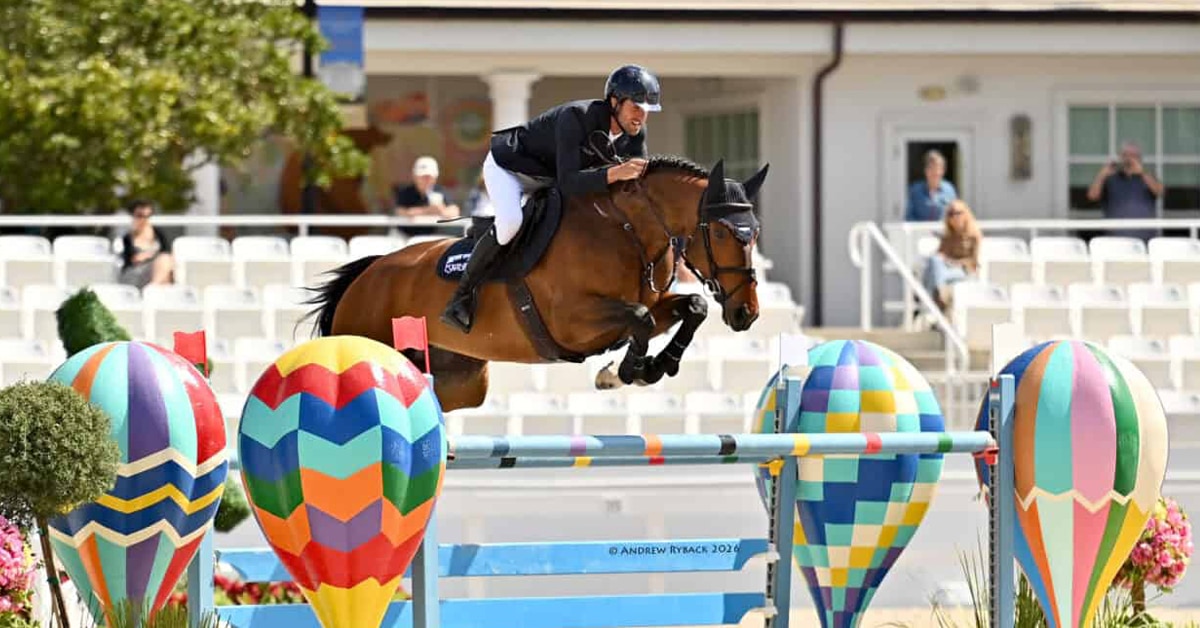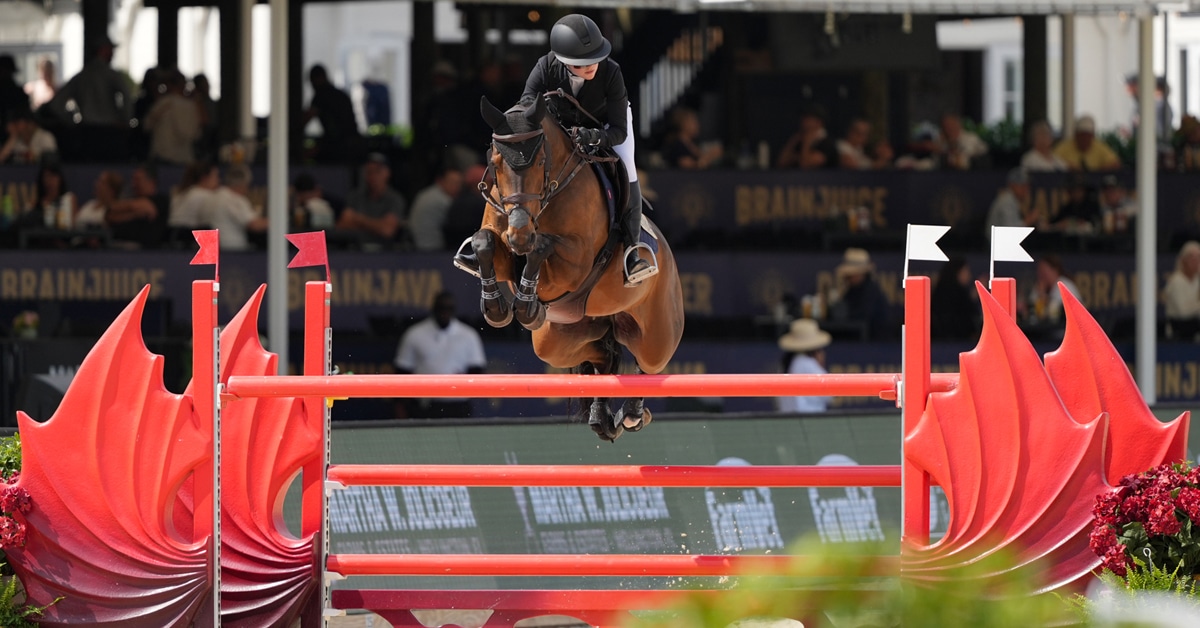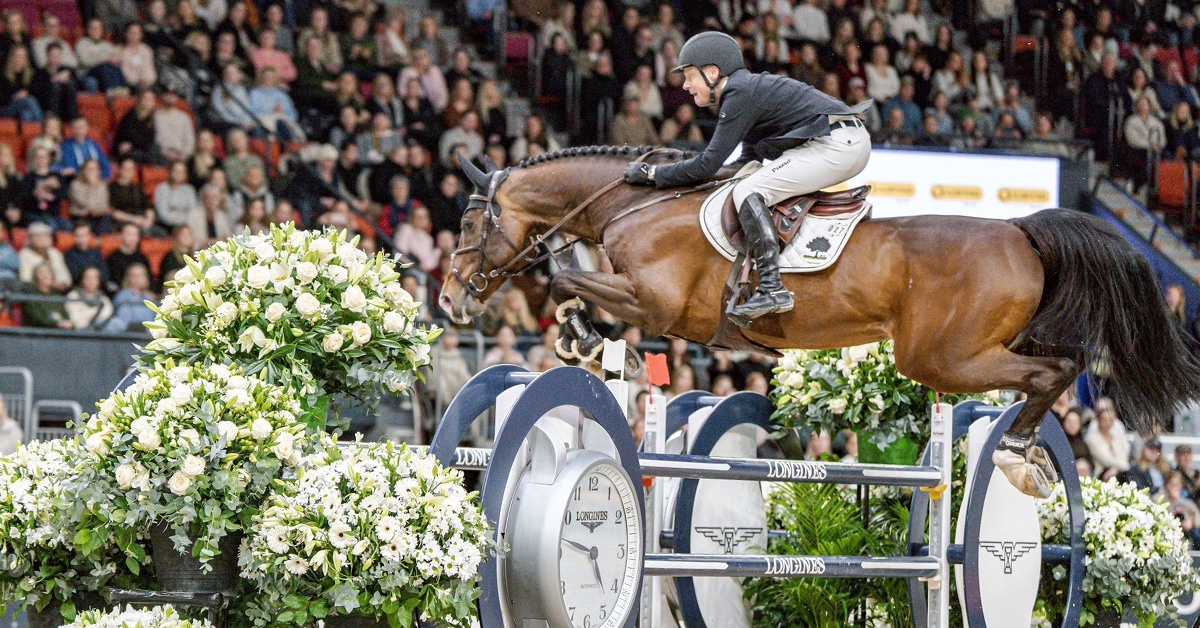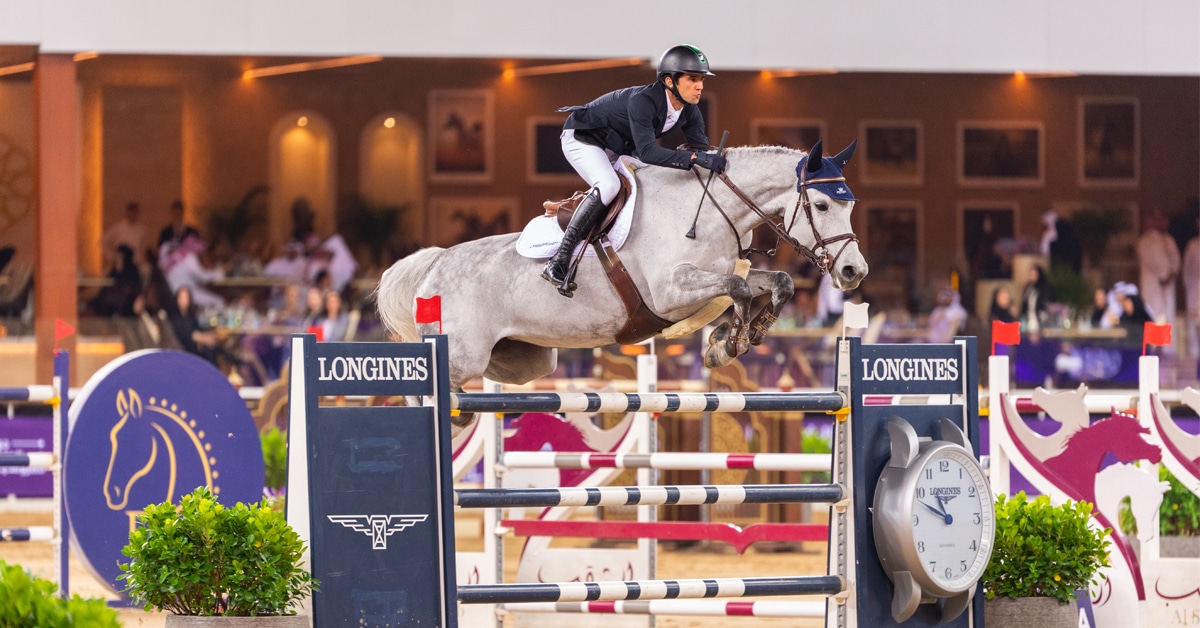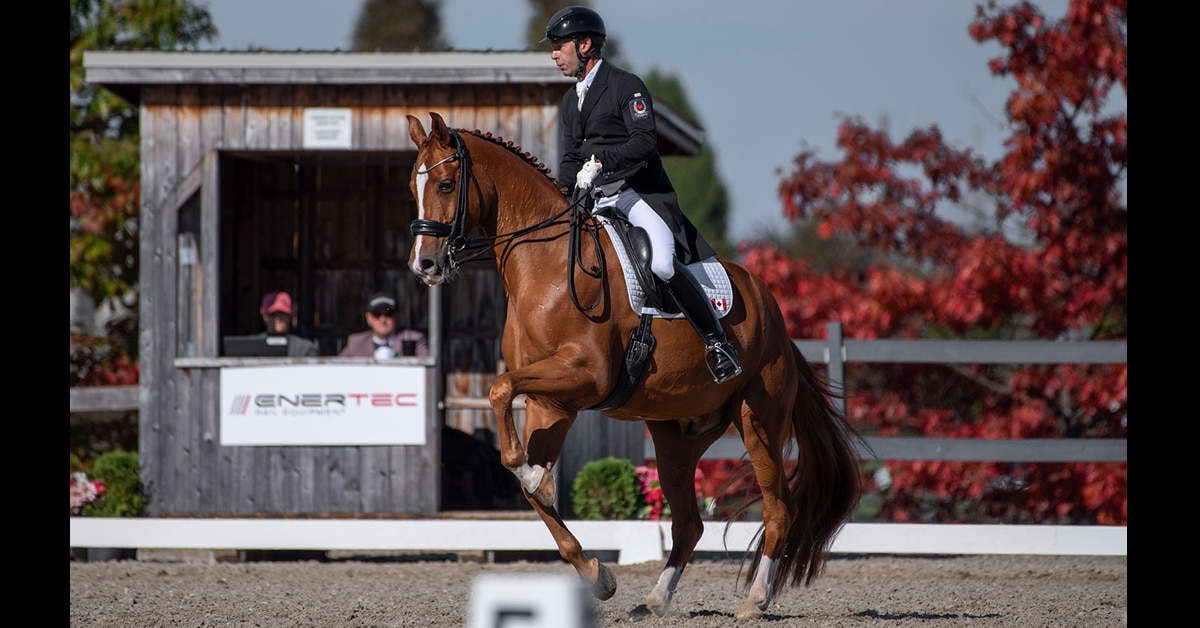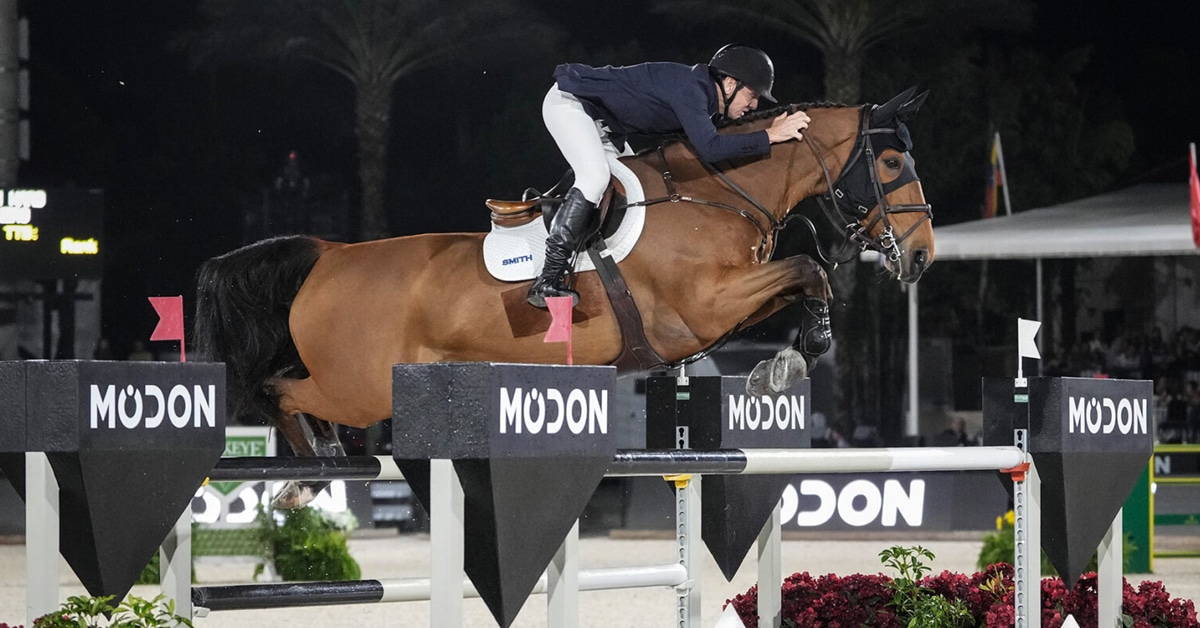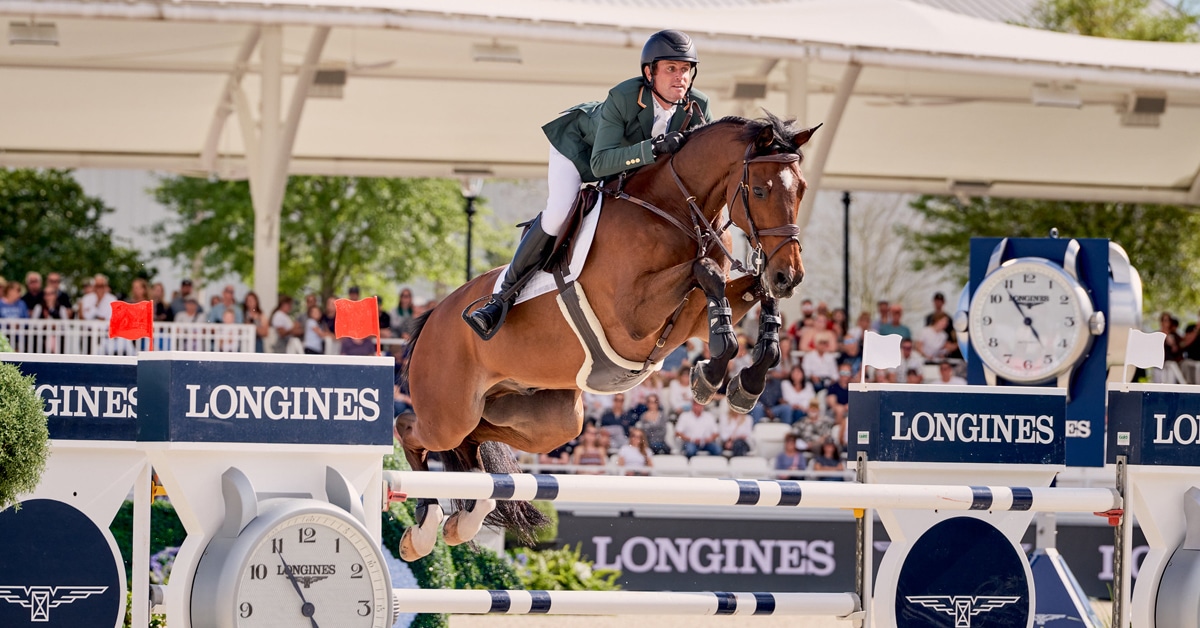Irish show jumping athlete Darragh Kenny, 37, has been provisionally suspended by the FEI as of October 13, 2025, for violating the FEI Human Anti-Doping Rules. He tested positive for a Class S6 (Stimulants) substance on the WADA Prohibited List at the Longines FEI Jumping European Championship in A Coruña, Spain, July 16-20.
Kenny is his country’s second-highest-ranked rider (14th) on the FEI World Rankings behind Daniel Coyle (9th). In addition to this summer’s Euros, Kenny has represented Ireland on teams at the 2014 World Equestrian Games in France, the 2019 European Championship, and the 2021 Olympic Games in Tokyo. He has won numerous grand prix, including the ATCO Cup with Lightning at the Spruce Meadows North American in Calgary in early July.
Horse Sport Ireland published this statement from Kenny following the suspension:
“I can confirm that after the European Championships earlier this year, I was notified by the FEI of a positive result for a medication prohibited under anti-doping regulations. The medication in question is part of a prescribed treatment I have been taking under medical supervision for ADHD. As a result, the FEI has imposed a provisional suspension while the matter is being reviewed. I am cooperating fully with the FEI and the International Testing Agency (ITA) to clarify the circumstances surrounding this case.”
“I want to emphasize that I never intended to gain any competitive advantage. My sole aim was to responsibly address a medical condition under professional guidance. I am deeply grateful to my National Federation, my sponsors, owners, clients, and the broader equestrian community for their support throughout this process.”
“Thank you for your understanding.”
Attention-deficit/hyperactivity disorder (ADHD) medications typically include stimulants such as methylphenidate (Ritalin, Concerta) and amphetamine (Adderall, Vyvanse), which help improve focus and concentration. Athletes can apply for a prospective Therapeutic Use Exemption (TUE) for prescribed substances so that they can continue to compete; in rare circumstances, an athlete may obtain a retroactive TUE after they have tested positive for a banned substance, which would negate their positive test.
HorseSport.com contacted the ITA (International Testing Agency), which now handles the anti-doping program for human athletes for the FEI, to ascertain:
a) whether a retroactive TUE would be accepted in this situation if Kenny did not have one in place, and
b) why there was such a long period of time between when he was notified of the positive result in July and when his provisional suspension began on October 13.
An ITA spokesperson commented, “As the case you refer to is currently being processed, we are unable to provide case-specific details at this stage, in accordance with the World Anti-Doping Code. The delegation of the FEI human anti-doping program to the ITA does not influence how cases are managed — all follow the same regulatory framework: the World Anti-Doping Code, its associated International Standards, and the FEI Human Anti-Doping Rules.
“The sequence and timing of procedural steps depend on the individual circumstances and complexity of each case. These steps are defined by the applicable rules rather than by the entity implementing them.
“In line with the ITA’s Public Disclosure Policy, the outcome of the case will be made public once the proceedings have been concluded.”
More News
